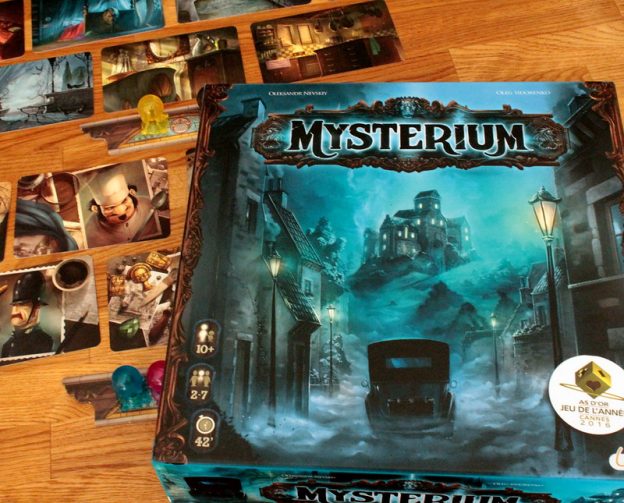Not long ago, our class got together to play sessions of the Fiasco Role Playing Game over a course of two weeks. Fiasco is an RPG System designed with the intent of creating chaos and allowing players to create the most disastrous situations they can. In this game, players use the color coded dice they have been given to help create their characters and determine the outcomes of scenes that they perform, all so that they can work together to create an interesting story where everything falls apart around their characters. It is worth noting that these dice rolls do not determine what the characters will be, but rather aspects of the character, such as their relationships with other characters (each player is actually required to establish at least one relationship with another character), what their goals are, and perhaps even key aspects of the world that all of the players can interact with, like important objects and locations. The players can then use all of these aspects to act out two scenes each in Act 1, developing their characters and creating conflict between their characters. Players can either establish a scene and act it out themselves, waiting for another player to give them either a positive or negative die to determine how it ends, or choose a positive or negative outcome and allow the other players to establish a scene for them to finish. For my personal group, this was the extent of our first session of Fiasco, as we ran out of time just as we finished our Act 1.
As for our session itself, once we had established our characters and our setting, a commercial district in the middle of a suburban town, it was time for us to start acting out our scenes. Personally, I believe that this was the most difficult part of the game for our group, at least initially. With nothing to go off of besides our characters goals and relationships. With that in mind, I tried my best to establish our first scene based upon my character, Eddy McFarlain, and his rival’s (another player) competing lemonade stands, and tried to use that pre-established conflict to help begin our story. As we continued to create scenes and get a feel for our characters, this process became much easier, leading to scenes where two estranged relatives fight with each other as passive aggressively as they possibly could, and a rival lemonade stand employs a “wizard” to sabotage their competition by graffitiing their cart. However, the initial starting point was very noticeably slower to start than any other scene that followed it.
While the beginning of our session may have been the most difficult part of our session, I believe that this also shows just how Fiasco might relate to leadership as a whole. In our game of Fiasco, we had difficulty beginning our scenes because we weren’t sure where our story was going at that point. Personally, I believe that this could represent the vision that a leader needs of their goal in order to successfully lead their team. If the leader is unsure of what their own goals are, they will likely have a very hard time actually guiding their team towards a common goal. During the course of their project, the goal might become clearer, and therefore easier for the leader to guide their team toward. However, it would be preferable for the leader to know exactly what their goal is from the beginning, so that the “warm up” period could be skipped entirely.
However, an insight into leadership is not the only important note that I believe I can take from this, as it may also contain an insight into myself. First though, I need to more completely describe the character that I was playing as in this session, Edward “Eddy” McFarlain. Eddy is an aspiring lemonade salesman that has been down on his luck recently, as his rival across the street has managed to do far more business than him. His goals, based upon the result of the earlier rolls, were to Get Rich using a living will, and to vaguely Get Even. He also has a The Past, fast friends relationship with one of the other characters, and a Work, business rivals relationship with another (his lemonade stand rival). However, despite all of these opportunities to create conflict himself, perhaps by instigating his rival or using his friend in some way, I ended up playing Eddy as a fairly honorable, if failing, businessman, and someone that tries to be a good friend. I personally think that this aspect reflects the most on me, as I try my best to be a helpful, caring friend, and to help out whenever I’m able. In this way, I believe that my own personal values ended up being visible in Eddy, as a character that tried to avoid dirty tactics in a system that is expressly designed for them.


